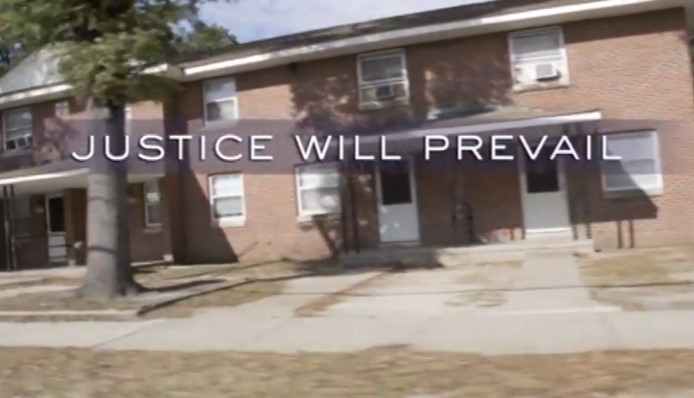Featured Cases
On October 17, 2024, U.S. District Judge Julie R. Rubin granted final approval of a $28.5 million proposed settlement of a class action lawsuit filed by Relman Colfax and co-counsel the National Student Legal Defense Network against Walden University (“Walden”), a for-profit university that offers online degree programs. The lawsuit was filed on January 7, 2022 and brought claims under Title VI of the Civil Rights Act of 1964, the Equal Credit Opportunity Act (“ECOA”) and Minnesota state law. Plaintiffs alleged that Walden engaged in “reverse redlining” by intentionally targeting Black and female students for what it falsely represented to be cost- and time-effective online degree programs, but that actually amounted to an expensive predatory scheme.
On May 19, 2021, Relman Colfax filed a lawsuit in federal court alleging that the Town of Natick, Massachusetts, its Planning Board and Historical Commission discriminated on the basis of race, color and national origin—in violation of the Fair Housing Act and the U.S. Constitution—when they delayed and then denied an application by a Black immigrant couple to build condominiums under a recently-enacted zoning bylaw.
On January 19, 2021, Relman Colfax and its co-counsel filed a housing discrimination lawsuit against the Town of Fairfield (Connecticut) on behalf of subsidiaries of Newport Healthcare seeking to open two group homes for young adults experiencing anxiety, depression, trauma and related mental health disabilities. The amended complaint alleges that Fairfield officials violated the Fair Housing Act, the Americans with Disabilities Act, the Rehabilitation Act of 1973 and the Connecticut Fair Housing Act by withholding necessary approvals for more than two years and preventing the opening of the homes.
This lawsuit against the DC Housing Authority (DCHA) and its property manager, brought by two public housing residents under the Fair Housing Act and Fourteenth Amendment, alleges that the property manager sexually harassed women living in DCHA properties for years.
In this Fair Housing Act lawsuit against a Virginia landlord, which challenged a racially discriminatory policy of rejecting all applicants with criminal backgrounds, the defendant agreed to adopt a new policy to ensure equal access to its properties.
In a significant victory in the fight for fair lending, we secured a major jury verdict against New York-based Emigrant Savings Bank and Emigrant Mortgage Company for discriminatory mortgage lending. The June 2016 liability verdict was both the first case in which a jury held a bank accountable for lending practices that contributed to the country’s 2008 financial collapse, and the first reverse redlining case ever to be tried in federal court.
Relman Colfax filed suit against the City of Peoria, alleging that the City intentionally targeted enforcement of its “chronic nuisance ordinance” in predominantly African-American neighborhoods and against buildings with predominantly African-American tenants, in violation of the Fair Housing Act. On August 31, 2020, HOPE settled its claims. Pursuant to the settlement, the City amended the ordinance and police department policies to ensure nondiscriminatory enforcement of the Ordinance and to protect tenant rights.
In October 2021, Relman Colfax obtained a precedent-setting $5.2 million jury verdict in a case involving the Town of Cromwell’s discrimination against a group home for men with mental health disabilities. Gilead Community Services, a non-profit serving people with mental health disabilities in Connecticut since 1968, sought to open a six-person home in Cromwell, Connecticut. Responding to the discriminatory opposition of neighbors, Cromwell waged a campaign that resulted in the closure of the home in August 2015.
- Fair Housing Rights Center in Southeastern Pennsylvania v. Morgan Properties Management Company, LLC
Relman Colfax obtained the first federal court decision holding that a landlord can violate the Fair Housing Act by maintaining a policy of refusing to consider the reasonable accommodation requests of disabled tenants or prospective tenants who seek to alter their rent due dates to correspond with the receipt of their disability benefits, resulting in a settlement including a policy change and damages.
In this Fair Housing Act case challenging an Ohio landlord's discrimination against tenants based on race and familial status, Relman Colfax obtained a consent order in 2014 requiring that the landlord hire a professional management company to operate his apartment complexes and an $850,000 settlement.
In 2013, in the first reverse redlining case filed against a for-profit school in the country for engaging in deceptive practices to encourage low-income African-American students to take out large federal student loans for an education that the school knew was inadequate, the firm obtained a $5 million settlement for a class of over 4,000 members.
Jury verdict of $1 million in favor of families evicted from housing complex in Pahokee Florida because landlord sought to remove all children from the complex.
In this race discrimination case against a hotel, the court denied summary judgment and determined that a franchisor may be held liable under a theory of apparent agency in Section 1981 public accommodations cases.
Publications
S. Dane, T. Ramchandani, and A. Bellows, Discriminatory Maintenance of REO Properties as a Violation of the Federal Fair Housing Act, 17 CUNY L. Rev. 383 (2015)
Recent Development: In re African-American Slave Descendants Litigation, 42 Harv. C.R.-C.L. L. Rev. (2007)
In the Media
Education
J.D., Harvard Law School
A.B., Brown University
Admissions
- District of Columbia
Massachusetts
Clerkships
- Hon. Algenon L. Marbley, U.S. District Court, Southern District of Ohio


